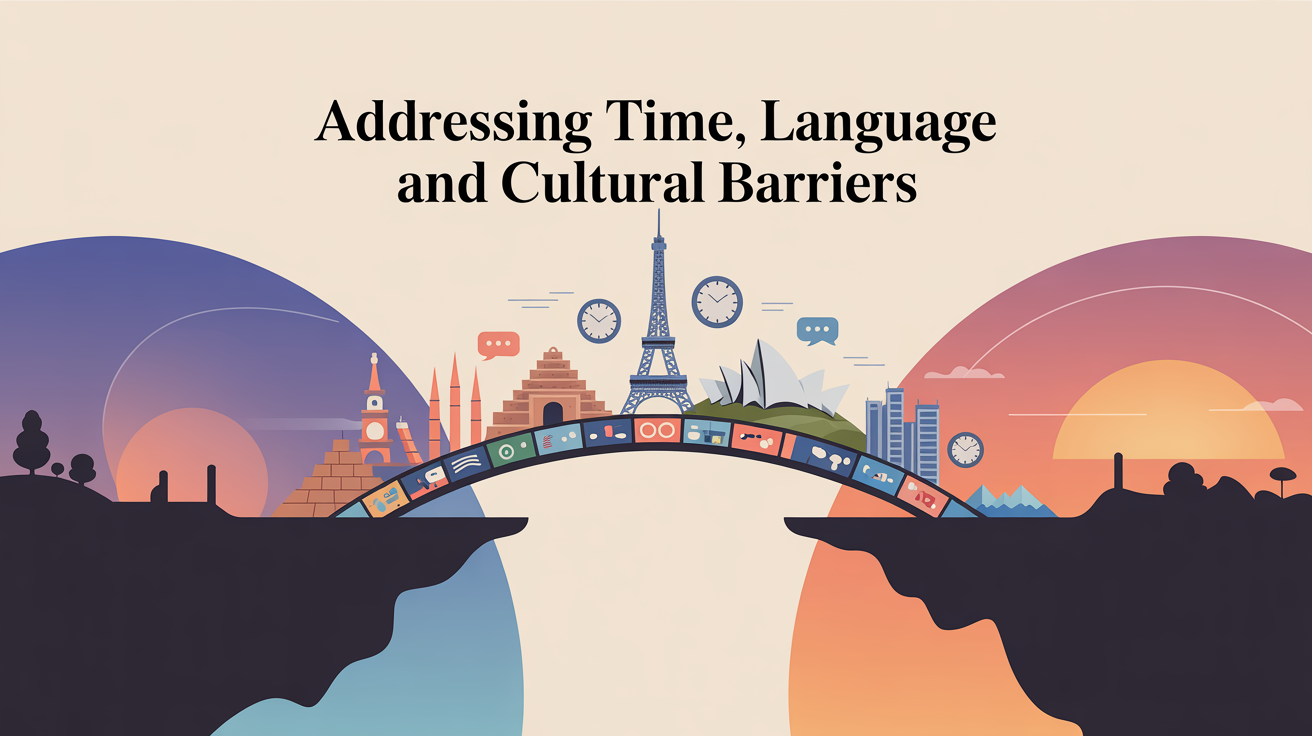Let’s be real for a second. I still remember the first time I got an email from a potential client in New York. I saw it came in at 3 AM our time, and my stomach just did a little flip. I immediately started doing the math in my head, thinking, “Okay, if they start work at 9 AM their time, that’s 9 PM here. Does that mean my workday ends when theirs begins?”
It feels like you’re worlds apart, and not just because of the distance. How are you supposed to work with someone when you’re sleeping while they’re working? How do you make sure you don’t sound weird when you talk to them? How do you avoid accidentally offending them?
These things, the time difference, the language, and the culture, can feel like the final bosses for a lot of us Filipino freelancers. But I want to show you how I learned to turn these so called weaknesses into my biggest strengths. Let’s break it down.
The Time Zone “Problem” is Actually Your Superpower
Most freelancers I know see the 12 hour time difference as a massive headache. I learned to see it as my secret weapon.
Think about it. Your client in the US or Europe can finish their workday, assign you a task, and then go to sleep. While they’re sleeping, you’re here, focused, and getting the work done. When they wake up, the finished work is sitting in their inbox like magic. You’ve basically given them a 24 hour work cycle. You’re not just a freelancer, you’re a productivity machine that works overnight for them.
To make this work, you have to get really good at writing clear, detailed messages. This is what they call asynchronous communication. I always end my daily report with something like, “Here is my progress, here is what I need from you, and I will check for your reply first thing when I log on tomorrow.” This cuts down on the back and forth. It’s also important to set clear boundaries. You are not expected to work at 2 AM. I always tell my clients my working hours in their time zone, for example, “I am available from 8 PM to 4 AM your time, EST.” Then, we find a one or two hour window in there that overlaps for any urgent calls.
The Language Barrier is About Being Clear, Not Perfect
I know so many of us are afraid of making grammar mistakes that we sometimes say nothing at all. We can spend 30 minutes trying to write the perfect two sentence email. I need you to stop doing that.
Your client did not hire a poet. They hired someone to solve a problem. They value clear communication much more than they value perfect, flowery English.
Just keep your sentences simple and direct. It’s much better to be clear than to try and sound impressive with big words. I highly recommend installing Grammarly. The free version is amazing and will catch most of your embarrassing typos and grammar mistakes before you hit send. And if you ever don’t understand something, don’t just pretend you do. It’s so much better to say, “Just to make sure I understand, you want me to do X, Y, and Z. Is that correct?” It shows you’re careful and detail oriented, and clients love that.
The Culture Gap and Why Directness is Not Anger
As a Filipino, I might say something like, “Maybe we can consider another option for the color?” An American client might just say, “I don’t like this color. Change it to blue.”
For us, that can feel rude or angry. For them, it’s just them being efficient. This is probably the biggest cultural hurdle I had to get over. I had to learn that they are not mad at me, they are just being direct.
The most important rule I learned is to not take it personally. Business feedback is about the project, not about you as a person. You have to separate the critique from your own self worth. You don’t have to become blunt yourself, but you can learn to be more direct. Instead of saying, “I was wondering if maybe you had a chance to look at the design,” I learned to write, “Hi Client Name, just following up on the design I sent yesterday. Let me know if you have any feedback.” It’s professional and it respects their time. The best way to bridge any cultural gap is to just be good at your job. Deliver great work on time and communicate clearly. Professionalism is a universal language every client understands and appreciates.
These aren’t barriers, they’re actually opportunities. They are chances to become a better communicator, a more efficient worker, and a globally competitive professional. Once you learn how to navigate them, you’re not just a freelancer from the Philippines. You become an indispensable part of your client’s team, no matter where they are in the world.
